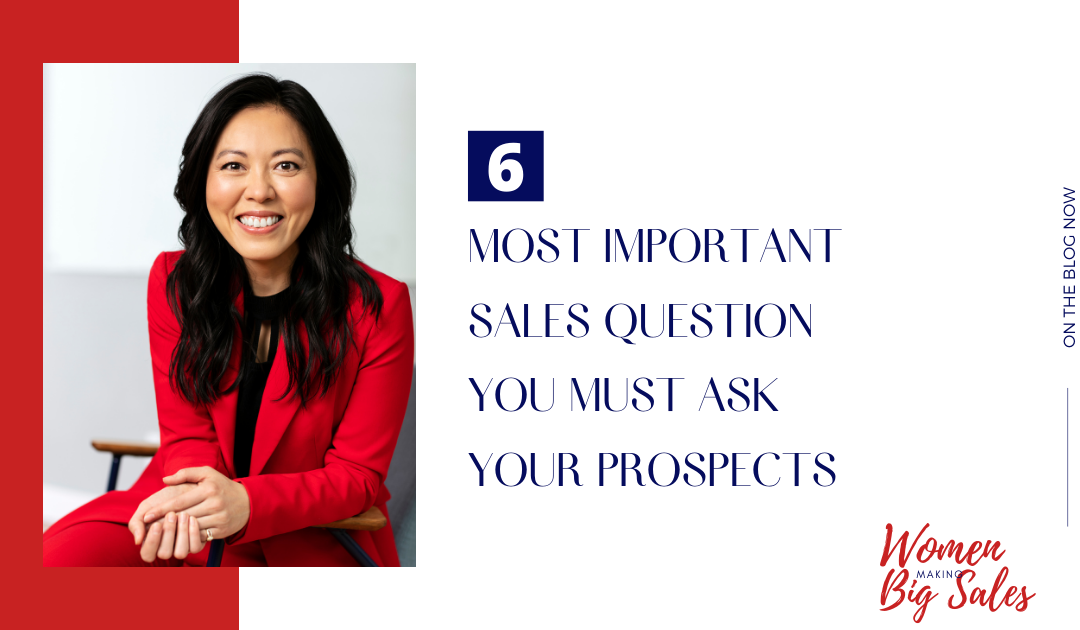Congratulations! You finally got a chance to speak with your prospective clients. You know it’s important to understand the unique challenges of your prospects, but how do you get your CEOs, founders, VPs, and directors to open up to you about such challenges?
What are the most important questions you need to be asking during a sales meeting?
Today, I’ll be sharing some of the most important sales questions you need to ask when you are in front of your prospects.
I will also share some key strategies for getting prospects to open up to you and share their most important challenges.
If you want to master your sales meetings and sales conversations, make sure to join us on Thursday for our Sales Masterclass.
Personal questions:
When you’re in front of your prospective clients, having small talk ready is crucial for easing into the sales tension you might be facing.
Any questions you ask during this initial small talk can be important and essential to help build up rapport with your prospective clients. This is the time to demonstrate that you truly care.
- How long have you worked here?
- How long have lived in [city]?
- Weather, family, and sports are also great ice-breaker topics!
Be yourself and focus on the person in front of you. Get to know them better. Remember, you’re not there to sell, you’re there to explore the potential of working together!
Challenge questions:
We know it is important to ask questions during sales meetings/calls with our prospective clients, but sometimes a simple question like “what challenges are you facing?” is not enough to get our decision makers to open up.
Imagine asking a busy CEO what challenges they face. Guess what? That CEO might not be ready to articulate this information or be at liberty to share the details with others.
Plus, our decision makers might expect us to already know their unique challenges.
So, how do we get CEOs, founders, VPs, and directors to open up?
In my experience, it’s always useful to have a backlog of context prepared before discussing their challenges.
When you share a challenge you often experience, or one you see already plaguing the industry, your prospects can share their own insights and whether they face similar challenges.
Here’s an example:
“From my experience, working with in [industry], I’ve noticed that certain companies face [specific challenge]. Does that happen to your company as well?”
By talking about others, you make it easier for the decision makers to share their own experiences. You are also positioning yourself as an industry insider.
It’s also important to talk about specific challenges, rather than generic ones. Remember, the more specific your messages, the more credible you sound.
Clarification questions:
Once we get our prospects to start opening up to us, we want more information! So, make sure to prepare a list of questions to encourage your prospects to elaborate on what they’re discussing.
We want to understand their unique challenges and what they are looking for when selecting a partner to work with. This is their key selection criteria.
Here is an example:
- “Can you tell me more about [challenge]?”
- “Can you elaborate on this?”
Decision-maker questions:
In B2B sales, the decision of whether or not to work with you involves more than just one person. Therefore, when you are in front of a particular prospect, you need to know who all is involved in making this decision.
You must know whether the person in front of you is the actual decision maker. There may be someone else calling the shot. You simply cannot afford not to know who is the final decision maker or who will be influencing this particular decision.
Don’t forget to ask your prospect:
- “Who will be involved in making the decision of whether we are a good fit for each other?”
Goal questions:
I like to see sales as a simple process of figuring out how to work together to achieve one common goal.
By asking your prospects what are their goals are, it makes it easier for you to talk about shared goals and how you would like to help them achieve their own.
Therefore a simple question like: “What are your goals for the next six months?” can be extremely effective.
Final support questions:
At the end of every single sales conversation, I like to ask my prospects: “Is there anything else I can support you with?”
By asking this question, it gives my prospect an opportunity to make sure that I have addressed any questions or objections they may have.
This question lets them have that five seconds to look back and think through whether or not they have any unanswered questions for me. At the same time, they are considering me as an advisor with respect to their goals. This also demonstrates that I am genuinely here to help and serve.
That’s it!
These are the most important questions you need to ask your prospects.
As usual, I would love to hear how these sales questions have supported you along your sales journey.
Which ones did you like most?
Which ones were the most effective?
Don’t forget to let me know by leaving a comment here or sharing your success stories or progress inside our Facebook group.
Remember, by sharing our progress, we inspire others.
By creating an amazing community together, we grow more successful, and are able to help other women do the same. I look forward to sharing more sales tips with you and supporting you along your sales journey.
To your big sales!
~Melinda


Recent Comments